Recalled: Ironman New Zealand, One of the Longest-Running Tris on the Planet
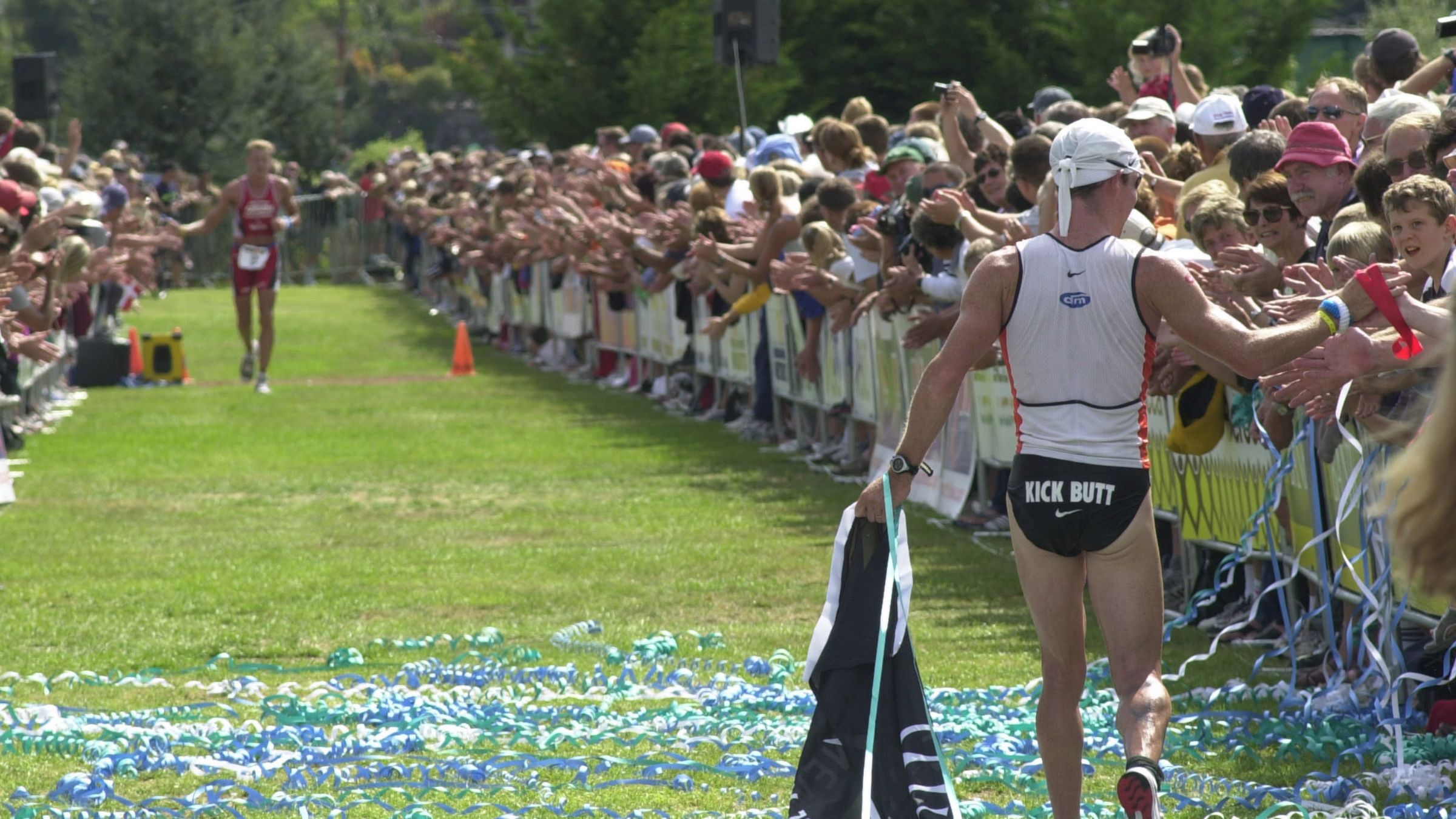
(Photo: Ross Land/Getty Images)
While the sport of triathlon has evolved dramatically since its inception some four decades ago, one constant has remained: The magnetic draw of the Hawaii Ironman. And it was this allure that Ironman New Zealand capitalized on back in 1985, when it became the first race to offer World Championship slots. Ultimately, qualifying races became standard practice around the world, but the Kiwis claimed it first, and their event set the stage for what would become one of the longest-running Ironman races in the world. After being postponed due to COVID restrictions last March, the next installment of Ironman New Zealand will take place on Saturday. Here’s a look back at the history of this storied race.
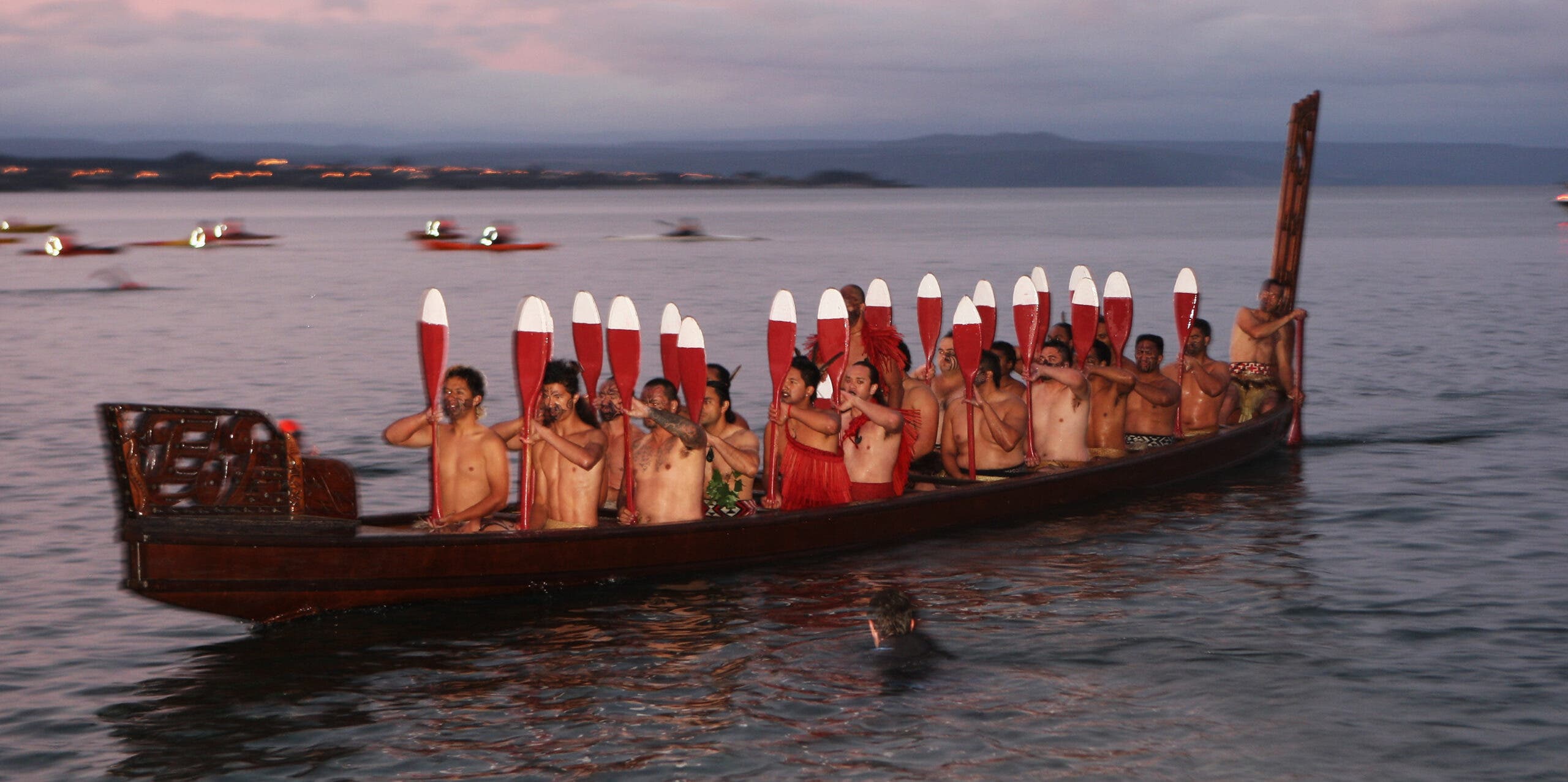
1985: “Ironman” New Zealand launches
An idea initially hatched by an Air New Zealand executive, the inaugural Ironman-sanctioned New Zealand launches as a way to boost tourism (and airfare sales). The plan works: The first race, held in Auckland on March 2, draws 340 athletes, 80 percent of whom hail from countries other than New Zealand, with 50 of those competitors earning automatic entry into Ironman World Championships. The one catch? The race isn’t actually an Ironman. Instead, it featured a 3K swim, 160K bike, and 30K run so that athletes can “save” the full distance for Hawaii (the event would shift to the Ironman distance in 1988). In the first edition American star Scott Molina took the tape for the men, outdistancing his closest competitor by 17 minutes. Michelle Gammie of New Zealand won the women’s race.
1986: Erin Baker snags first of four wins
Kiwi triathlon queen Erin Baker makes her mark on the challenging Auckland course, winning her first of four Ironman New Zealand titles in dynamic fashion. The 25-year-old finished 20 minutes ahead of American darling Julie Moss, celebrating her win with a beer and ice cream just minutes after crossing the finish line. Baker won again in 1987 (widening her margin of victory to 28 minutes over American Linda Buchanan), 1990, and 1994. American Scott Tinley tops the men’s race over Glenn Davies.
1990: Finish line drama for closest-ever Ironman
The men’s race provides all the drama when Finland’s Pauli Kiuri and American Ken Glah engage in a psychological battle supreme for the final miles of the run, with it all coming down to the final stretch. After a heated sprint for the finish, Kiuri edges out Glah by less than one second—which remains the closest Ironman finish ever.
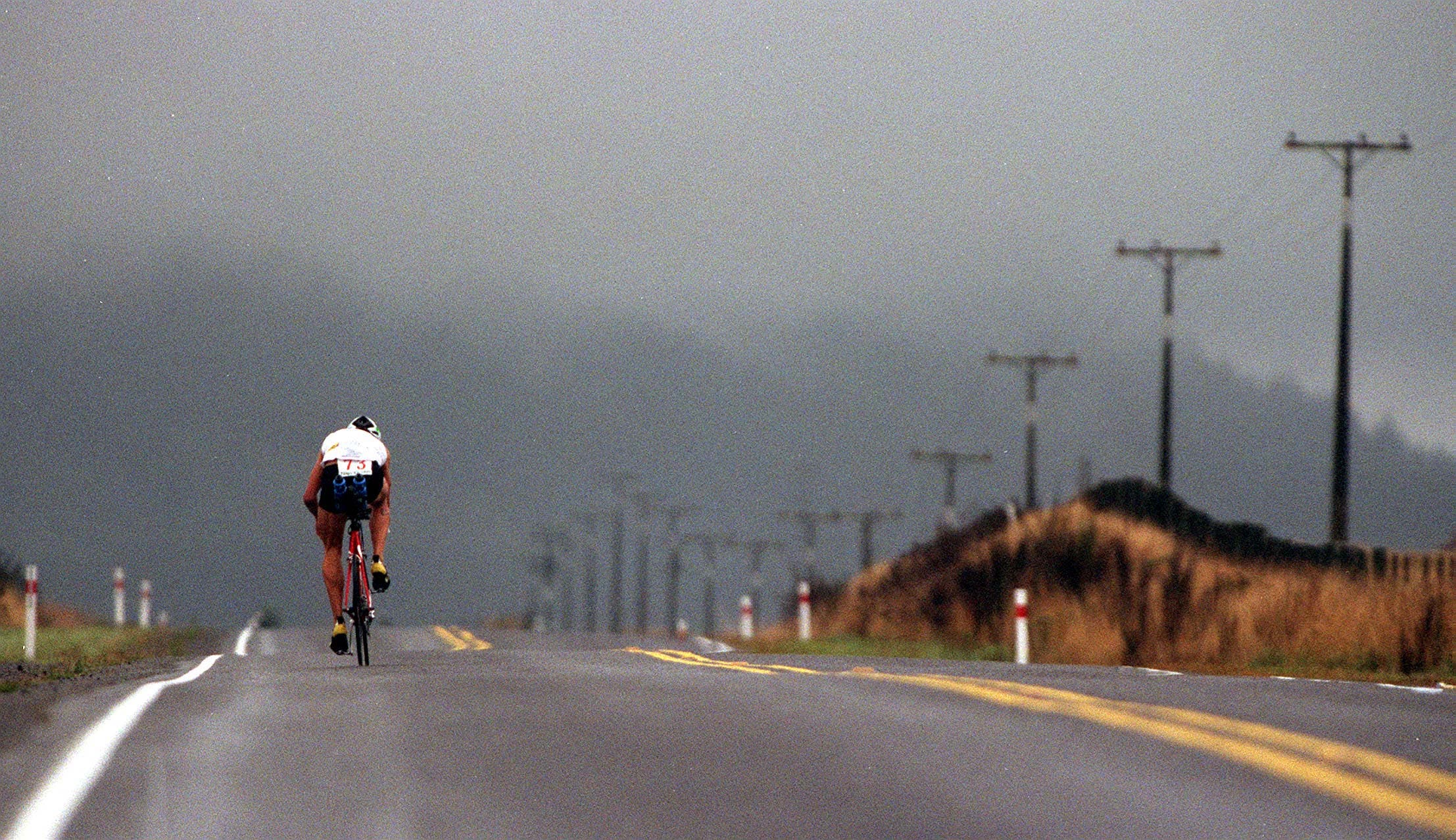
1999: Ironman New Zealand moves to Taupō
The event packs its bags and heads south to Taupō, a picturesque town that sits on its namesake lake, one of the world’s largest freshwater lakes. Future two-time Ironman World Champ Tim Deboom just edges out hometown favorite Cameron Brown to win by 13 seconds on a cool, overcast day. Canada’s Melissa Spooner wins for the women.
2001: Cameron Brown begins his epic Ironman New Zealand streak
After finishing second two years in a row, Brown, who grew up watching the Auckland race, rises to the top of the men’s field, demolishing a 12-minute lead held by ITU World Champion Peter Sandvang off the bike. The Kiwi goes on to win the race a record-setting 12 times, most recently in 2016 at the age of 43. Now 50, Brown is not on the 2022 start list due to an injury, but recently commented on his Instagram page that he plans to race the 2023 Ironman New Zealand in March.
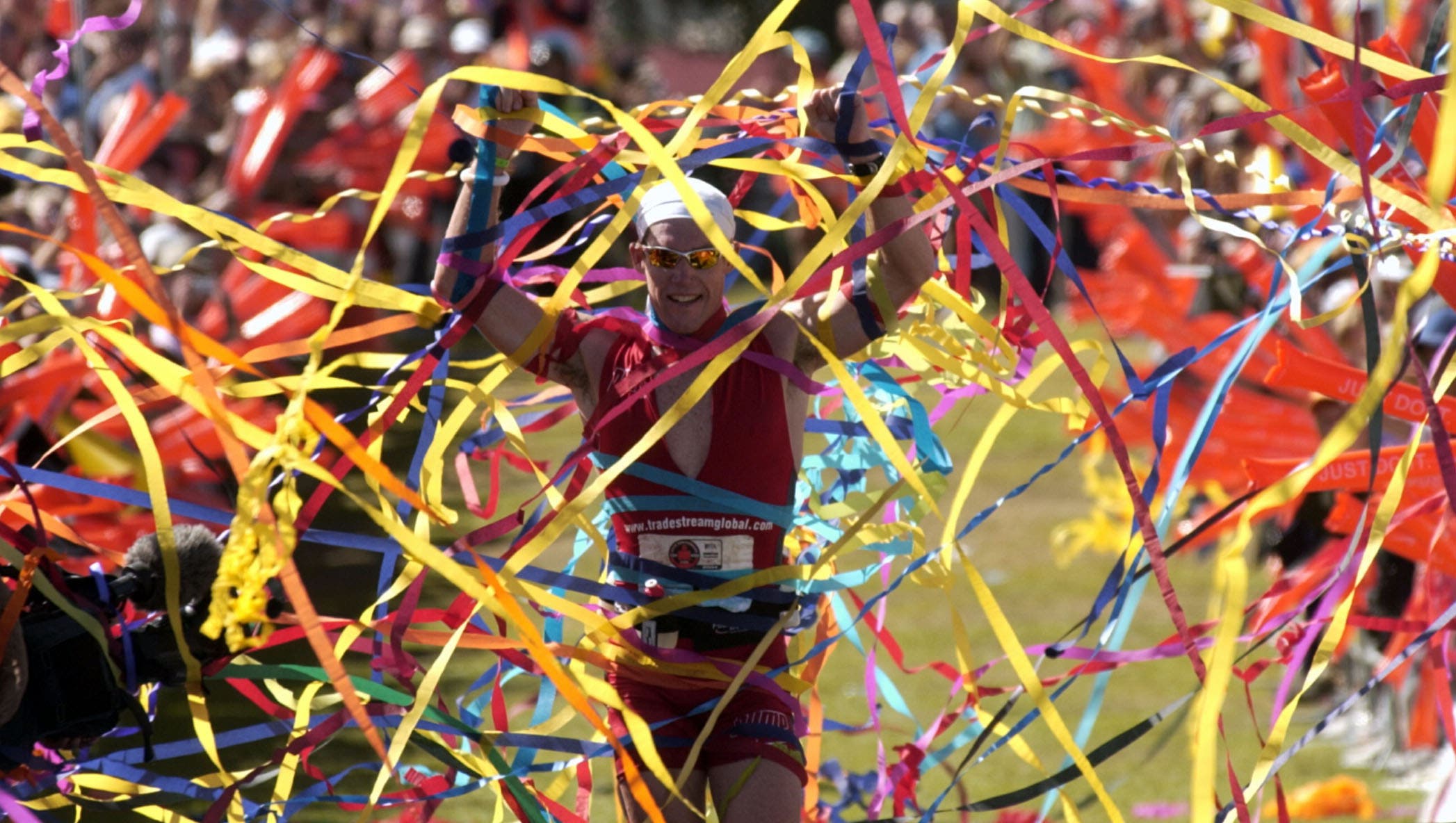
2003: Joanna Lawn asserts her dominance
Auckland native Joanna Lawn takes the tape in Taupō for the first of seven times—a feat yet to be matched by any other woman. She’ll go on to take consecutive victories until 2008, then again in 2010 where she avenged her 2009 runner-up finish to countrywoman Gina Crawford by winning by 14 minutes. Although her wins would wind down in 2010, Lawn continued to race Ironman New Zealand, snagging podium spots in 2011 (3rd) and 2012 (3rd).
2012: Meredith Kessler takes control
After several years of dominance by Kiwi triathletes, American Meredith Kessler initiates a changing of the guards with her resounding 2012 win. With the race distance shortened to a 70.3 due to severe weather, Kessler posts the day’s second-fastest swim, and the speediest bike and run combo to beat Australia’s Kate Bevilaqua by nearly eight minutes.
(Belgian triathlete Marino Vanhoenaker wins for the men.) “Kiwi Kessler” will continue her reign in Taupō for five straight years, before going on to finish third in 2017 and 2019 and second in 2020.
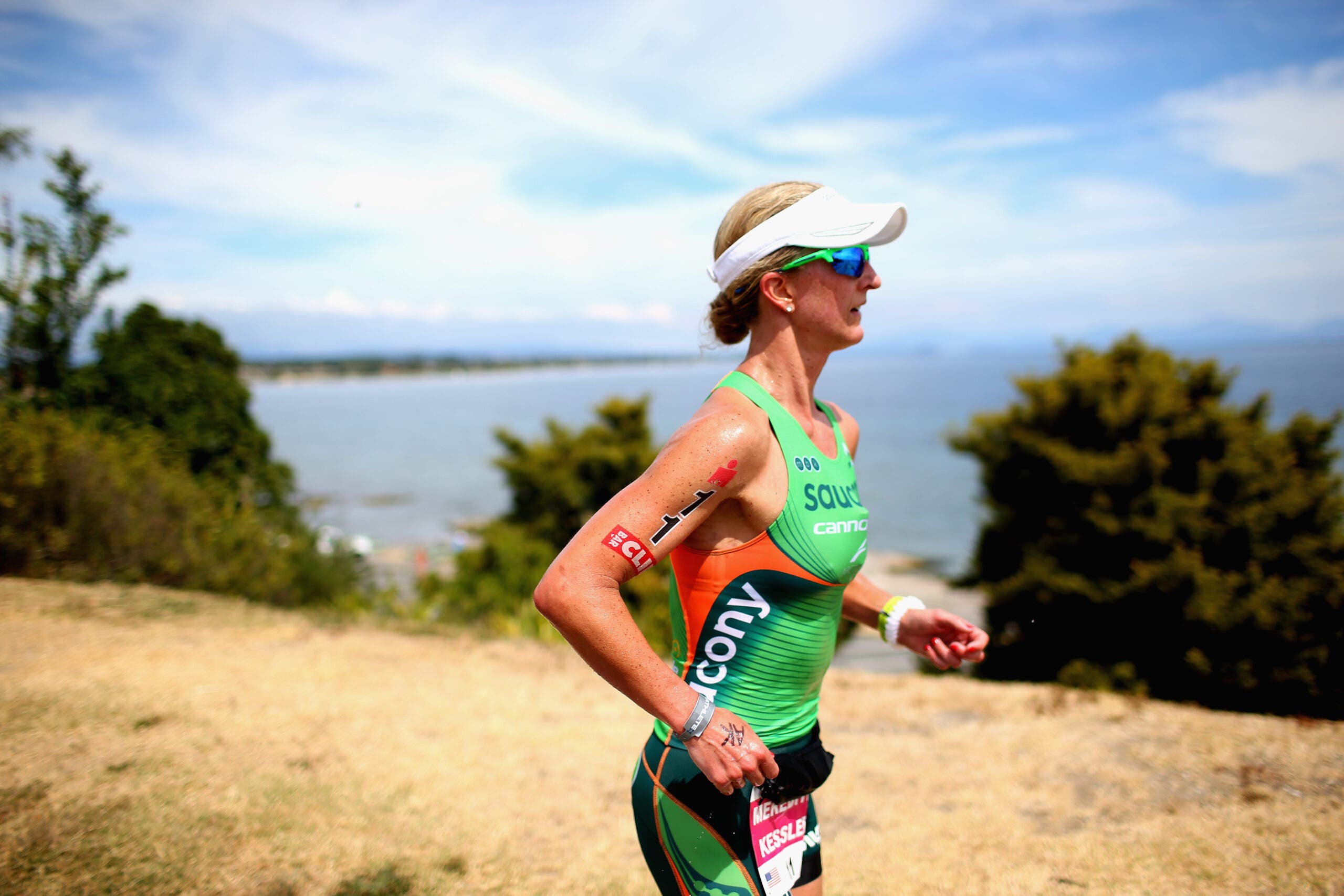
2020: A Kiwi reclaims the top step at Ironman New Zealand, course records set
Teresa Adam, a New Zealand National Time Trial champion in cycling from the town of Aotearoa, is the first Kiwi to win the women’s race since 2011 (American Jocelyn McCauley and Brit Laura Siddal both earn victories after Kessler’s reign.) Adam smashed McCauley’s course record by 13 minutes in the process, finishing in 8:40:29. Brit Joe Skipper triumphs over Kiwi Mike Philips, the 2019 champ, with a new course record of 7:54:17. The event, held on March 7, is one of the last major triathlons to take place before much of the rest of the 2020 calendar is canceled due to the pandemic.
2022: Ironman New Zealand postponed, moves to December date
Although the 2021 race was able to happen with a limited, mostly Kiwi-dominated field (Braden Currie and Hannah Wells would take the win), COVID rears its ugly head in 2022, when the race, scheduled for March 5, 2022, is postponed due to rising cases and tight pandemic restrictions. The event is rescheduled for December to coincide with Ironman 70.3 Taupō, and will resume its regular March date in 2023.
The December 10, 2022 event will also be notable for a different reason: The retirement of legendary Ironman announcer Mike Reilly, also known as “The Voice of Ironman.” The race will be his last-ever Ironman at the mic, where he will be joined by his friends and family in celebration of 33 years of calling athletes across the finish line.